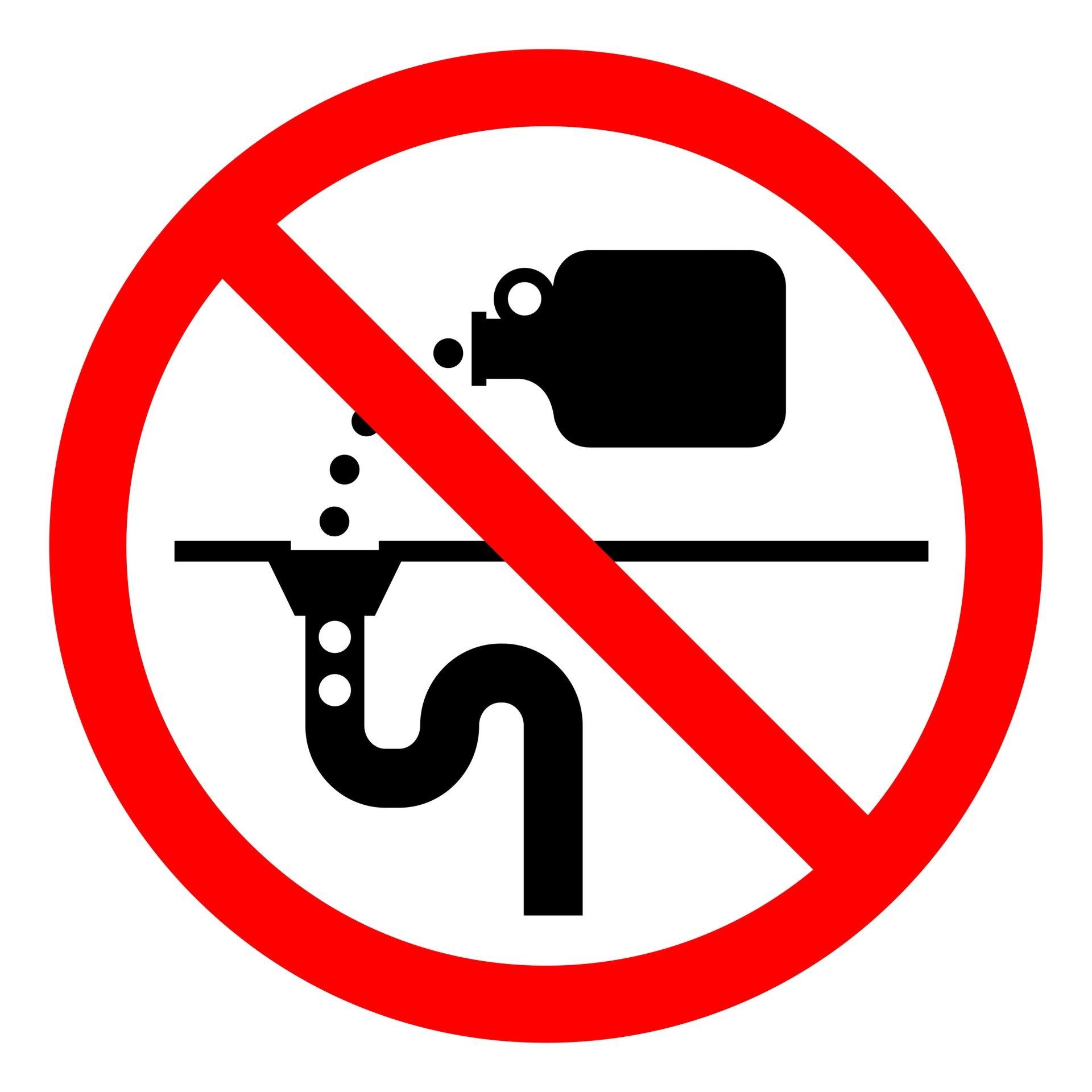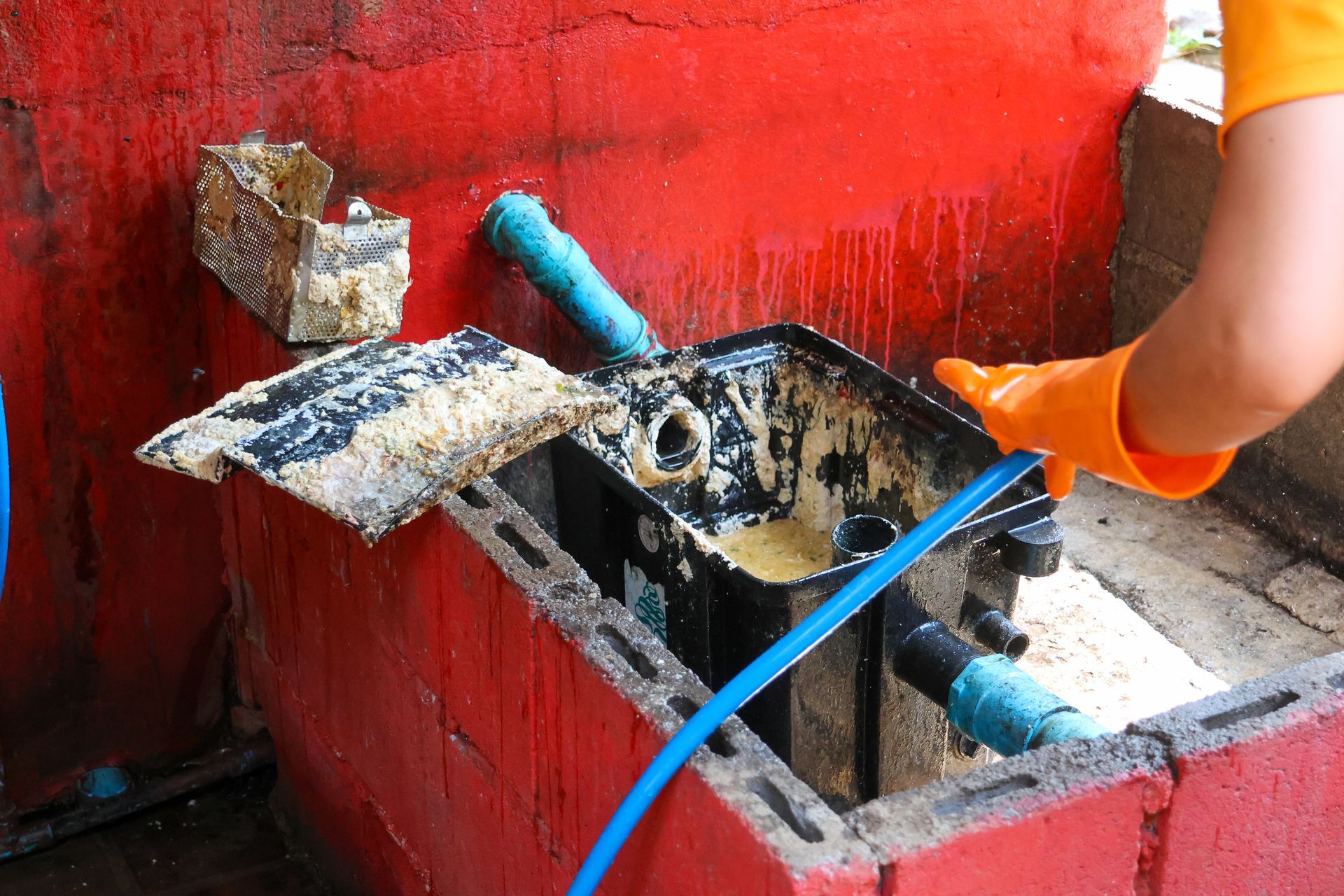What Happens If I dispose of Fats, Oils or Grease (FOG) Down a Drain?
When grease is poured down the drain, it can harden and stick to the lining of the pipes. The grease and oil then traps and collects anything else that goes down the drain, causing them to clog. Once the drain is clogged, sinks start to back up and fill. Even the grease that manages to get through a pipe and into the sewer can cause problems. The collective FOG waste of businesses and residents of an area can cause massive blockages in sewer systems.
There’s also a risk for cooking waste to seep into rivers and local streams, causing additional harm to the environment. FOG can also make it difficult to process wastewater, contributing to increased maintenance and repair costs for water treatment facilities.
The pollution of grease and oils increases the possibility of human contact with disease-causing organisms. FOG-related clogs frequently lead to sewer backups and overflows, which can pose a danger to residents in addition to being expensive and time consuming to fix and clean up.
FOG is also highly flammable and can lead to dangerous home or business fires. There were 172,000 home fires started by cooking between 2012 and 2016. Approximately half of all home cooking fires begin with the ignition of fats, cooking oils and grease. About two-thirds of all deaths and three quarters of all injuries in residential cooking fires are from FOG fires.
Disposing of FOG at Home Safely in the Trash
Cooled and solidified fats, oils and grease should be thrown in the trash. It’s generally recommended that you keep a metal can or glass jar around to collect grease. Glass jars are often ideal since they can be sealed with a lid. Once the jar or can is full and cooled you should throw it in the trash. Dumping hot liquid FOG into trash bags or bins is another fire and burn risk, as it can easily melt through flimsy bags.
Keep in mind that FOG disposed of in the trash can attract animals. Disposing of sealed containers is always preferable, and it’s often best to deposit FOG in secured bins or right before trash is collected to minimize the risk of animals digging for it.
Safe FOG disposal is relatively simple and cheap for homeowners, but it’s not always that easy for businesses.
Business FOG Disposal
Even a small amount of FOG that escapes into your sink at home and down the drain can have a negative impact. The problems can be far bigger for restaurants that cook with gallons and gallons of oil in fryers and produce copious amounts of fat and grease every day.
On average, fast food places alone generate nearly 200 pounds of grease per week. Based on a recent Restaurant Industry Comprehensive Report, there are more than 18,000 restaurants in Georgia.
That is a lot of grease that needs to be disposed of, which is why there are statewide and municipal regulations in place to ensure restaurants properly dispose of FOG.
The grease traps and grease interceptors that are required by law in every Georgia restaurant come in many different shapes and sizes, but their ultimate function isn’t all the different from keeping FOG in a jar at home.
Water carrying FOG flows down sink and dishwasher drains into indoor or outdoor grease traps. Heavier FOG cools and sinks to the bottom while lighter waste floats on top. A drain on the opposite side of a grease trap from the intake lets the FOG-free wastewater flow into the sewer. Many Georgia restaurants are required to have their grease traps serviced and all the FOG removed at least once every 14 or 90 days (depending on if they’re indoors or outdoors) to ensure they never overflow.
Organizations like the Southeastern FOG Alliance were created to advise on specific rules and regulations and provide licensing and resource materials to prevent improper disposal of commercial waste. Their goal is to educate people on the importance of proper FOG disposal and ensure professionals in grease trap cleaning, wastewater disposal and oil recycling are well trained and equipped.
To learn more about the rules and regulations for FOG disposal, you can visit www.southeasternfogalliance.org.
Trust Your FOG Disposal to Georgia’s Grease Trap Servicing and Waste Oil Recycling Experts
Southern Green Industries can help with FOG disposal and make sure your restaurant is in compliance with all the FOG and fryer oil disposal rules and regulations for your business. We serve the entire state of Georgia with one-stop, full-service grease trap cleaning and fryer oil recycling. Our goal is to provide a low-touch, worry-free service that makes managing your business easier!
To get more information about cleaning your grease trap or getting rid of FOG waste give us a call at (404) 419- 6887. We are happy to provide free quotes and will send someone to your location as soon as possible. Visit our website to learn more about Southern Green.
Recent Blog Posts
Contact us Today for a FREE Quote
We are committed to making grease trap cleaning and fryer oil recycling as clean and easy as possible. If you’d like to learn more about our services or get a quote, give us a call at (404) 419-6887.




